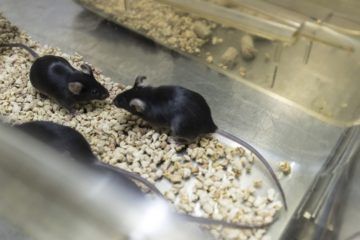Heidi Ledford in Nature:
 Ageing affects the body in myriad ways — among them, adding, removing or altering chemical groups such as methyls on DNA. These ‘epigenetic’ changes accumulate as a person ages, and some researchers have proposed tracking the changes as a way of calibrating a molecular clock to measure biological age, an assessment that takes into account biological wear-and-tear and can differ from chronological age. That has raised the possibility that epigenetic changes contribute to the effects of ageing. “We set out with a question: if epigenetic changes are a driver of ageing, can you reset the epigenome?” says David Sinclair, a geneticist at Harvard Medical School in Boston, Massachusetts, and a co-author of the Nature study. “Can you reverse the clock?”
Ageing affects the body in myriad ways — among them, adding, removing or altering chemical groups such as methyls on DNA. These ‘epigenetic’ changes accumulate as a person ages, and some researchers have proposed tracking the changes as a way of calibrating a molecular clock to measure biological age, an assessment that takes into account biological wear-and-tear and can differ from chronological age. That has raised the possibility that epigenetic changes contribute to the effects of ageing. “We set out with a question: if epigenetic changes are a driver of ageing, can you reset the epigenome?” says David Sinclair, a geneticist at Harvard Medical School in Boston, Massachusetts, and a co-author of the Nature study. “Can you reverse the clock?”
There were suggestions that the approach could work: in 2016, Belmonte and his colleagues reported2 the effects of expressing four genes in mice genetically engineered to age more rapidly than normal. It was already known that triggering these genes could cause cells to lose their developmental identity — the features that make, for example, a skin cell look and behave like a skin cell — and revert to a stem-cell like state. But rather than turn the genes on and leave them that way, Belmonte’s team turned them on for only a few days, then switched them off again, in the hope of reverting cells to a ‘younger’ state without erasing their identity.
The result was mice that aged more slowly, and had a pattern of epigenetic marks indicative of younger animals.
More here.
